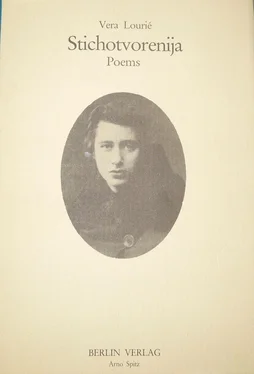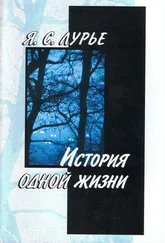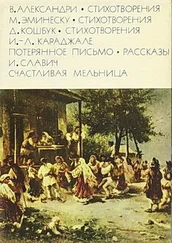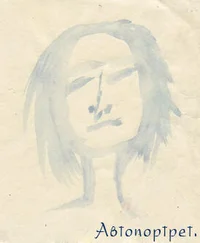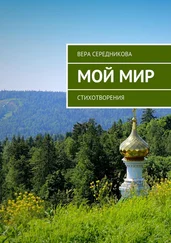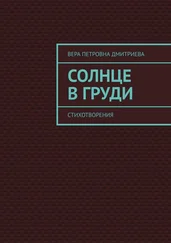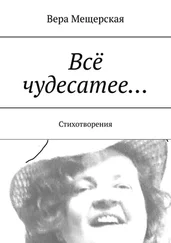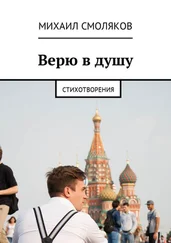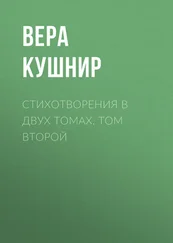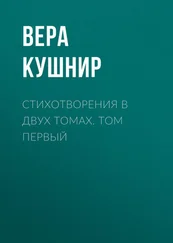I'm faithful to you even in a foreign land
My black-earthed, native Rus,
And your patterned, motley colored lines
I’ll carefully touch with my verses.
Her enthusiasm for Russia and renewed faith in her poetry were closely connected with her encounter with Andrej Belyj, the pseudonym of Boris Nikolaevic Bugaev. Several poems are dedicated to B.N.B. and others can be readily identified with him. Here again, however, her youthful desires for a romance are shattered under the harsh reality of the middle aged poet. While Belyj undoubtedly promoted the publishing of her poems and reviews, his interest in her romantically never approached her all encompassing love.
If only I needn’t think and believe,
That there’s no goal and nothing to live for.
And on my knees I pray to God
To give my songs the strength to bring back
Your love and meek glance!
And the road shall become joyful again!
One can trace the relationship from Berlin to Zossen, where Belyj lived during May and June of 1922, to Swinemunde where both would join the Russian community in this resort town. In a poem entitled “The 27th of October” (Belyj’s birthday was October 14 in the Old Style, October 27 on the New Style calendar) the poet expresses a willingness to sell anything, give anything to gain the affections of his love.
And on your holiday all alone
I’ll lie down on my bed
And not from sweet wine,
Shall I know the bitter intoxication.
But fervently I’ll pray to God.
He can help me,
And I believe — you’ll dream of me
My love this night.
By year’s end Vera cries in her own room trying to find the strength to survive.
I want to learn a simple wisdom,
How to love not one, but many,
And without demanding, to give
Without jealousy, doubts and worry.
The third and longest selection of poems focuses on the “thread” of life and of poetry. Written in 1923 and 1924 the poems reflect the departure of her friends and close acquaintances from Berlin. There is no place to go, no one to love, nothing to say. Instead the poet turns to introspection, to memories, which become the sustaining element in her life. The Russian church service in Berlin, the singing of the choir, preserve the continuity of her life and her art. “Everything is so simple in God’s world” she writes, “there’s only life and death.” It is this simplicity which now becomes her goal in a life filled with complexity of emotion and desires. The spring of 1923, the indomitable spirit of youth, give rebirth to her poetic voice. She listens enviously to the words and rhythms of Marina Cvetaeva’s collection of poetry Remeslo (The Craft). Fascinated, just as had been Belyj, she reflects upon her own poetic craft and makes her own statement the value of the poet.
Let the true path be shown to the inexperienced,
By the hand of the tried poet
No, it’s not spiritual, nor earthly even
The patience of the turner at his stand.
A short poem is a time consuming work,
But the poet keeps returning to it.
As а shoemaker places boots on lasts,
To give them true form.
It is one more twist of fate that just as she was beginning to develop fully her own poetic skills, the literary community which had been her support group largely departed. Belyj, Xodasevit, Remizov, Baxrax, Nina Berberova, all went their separate ways in the fall of 1923. Novaja Russkaja Kniga ceased publishing. The holiday season of 1923 would again bring only anguished memories of former happiness. In the following year the poet would begin to write of Berlin, but it could still not compete with her birthplace.
I’ve crushed the stifling boredom of loneliness,
Forgotten about Berlin, to glance back
And see through the versts and years of separation
That tranquil, evening, native Petrograd.
Slowly even her dreams would come to an end. The river of memories ceased running. There is a growing resignation, a realization that there is no stopping the “flight of time.” Finally “There aren’t even memories any longer; Just sometimes once a month, or twice.” Nor was there anyone left with whom to share thoughts, to listen to her words. The last poem of the book speaks longingly, hopefully, but unsure of where and when we will meet again.
The voice was stilled, the writing of poems ceased. Having written almost 150 poems in some five years, Vera Lourie has only sporadically broken the silence. It would be ten years before two short poems would appear in print, and these are repetitions of the desire for a return to better times and happier places. A more significant contribution is made between 1935 and 1937 in a number of poems dedicated to A.V. Poznjakov. Once again strong emotion, love for another person, calls forth words, requires and demands on outlet in poetry that she could not express publicly. “I can’t come over and embrace you,” the poet complains as she reveals “I learned long ago to conceal all affection.”
Even this relationship mixes memory with imagination. The poet envisions her lover as a boy in Russia. Her vision is its own reward, and she is determined to hold onto it even if it not be accurate The final poem in the series sums up the tragedy which seemed inevitably to find the poet.
You cannot come to me in life,
Then come to me in sleep,
Tell me of your suffering too,
In the spring March stillness.
I know not of your heavy thoughts
Nor of the camp days before your death.
Full of life, joyful, happy
You remain in my memory.
The poet was written in 1941 when Vera was informed that A.N.P., who had been arrested for providing forged passports to Jews, had perished in Dachau.
Another fifteen years passes before Vera Lourie once again begins to write. Her experiences in Germany before and after the war were of interest to the Russian emigre community and in addition she records for Russkaja Mysl’ her memoirs of Gumilev, Evreinov and Andrej Belyj. She also decides to publish several of her earlier poems again, and she composes three new ones which recall the earlier days in Petersburg and also capture the reality of Berlin.
Once again silent for almost two decades Vera turns to poetry again in 1983. She writes four poems in Russian, all dedicated to R.H. No longer about Petersburg, the new poems detail the long and difficult journey of her life, now made somewhat easier by her new found friend. There is renewed joy, a sense of the seasons, of summer coming after the winter. The days without her friend are empty and gray, and the poet asks forgiveness for perhaps loving her too tenderly. Her final poem written in Russian is both a summation of her own literary career and a recognition and tribute to Russian Berlin, which has been her home for the past sixty years. “You won’t recognize die old streets of Berlin,” but Vera remembers them and her own modest literary efforts of the 1920’s:
This tone has long since passed…
A new city has risen from the ruins,
Only I have not grown weary
Of recalling you, old Berlin!
Something of a new life occurs in 1983 for Vera Lourie. She is inspired to write in German and to date has written over thirty poems which she calls Tagebuch einer Seele . Responding to the presence and artistic sensitivity of her special friend, Vera first attemts to shower her with love and affection. One is struck by the intensity of the emotion and the singular focus of the poet’s vision. Yet for readers of the Russian poems, the themes begin to echo her earlier works and follow a similar progression. There is the love, so all-consuming that it cannot be matched. The ensuing disapointment and the realization of human limitations lead the poet to the sanctuary of memory and imagination — to her Muse and poetry. There is her Marchenland in the world of music and poetry “Ich war nicht mehr alt, ich war nicht mehr krank.” In her poem “Es war, es ist” Vera’s Fee bridges the past and present, Petersburg and Berlin. For too many years Vera’s poetic fairy has been kept hidden in her desk drawer. Finally she has found a way to let her out and share with us the magical world of words which has sustained her through the long journey of life.
Читать дальше
